Even Goldman Sachs thinks monopolies are pillaging American consumers
Granted, Goldman is delighted by this...

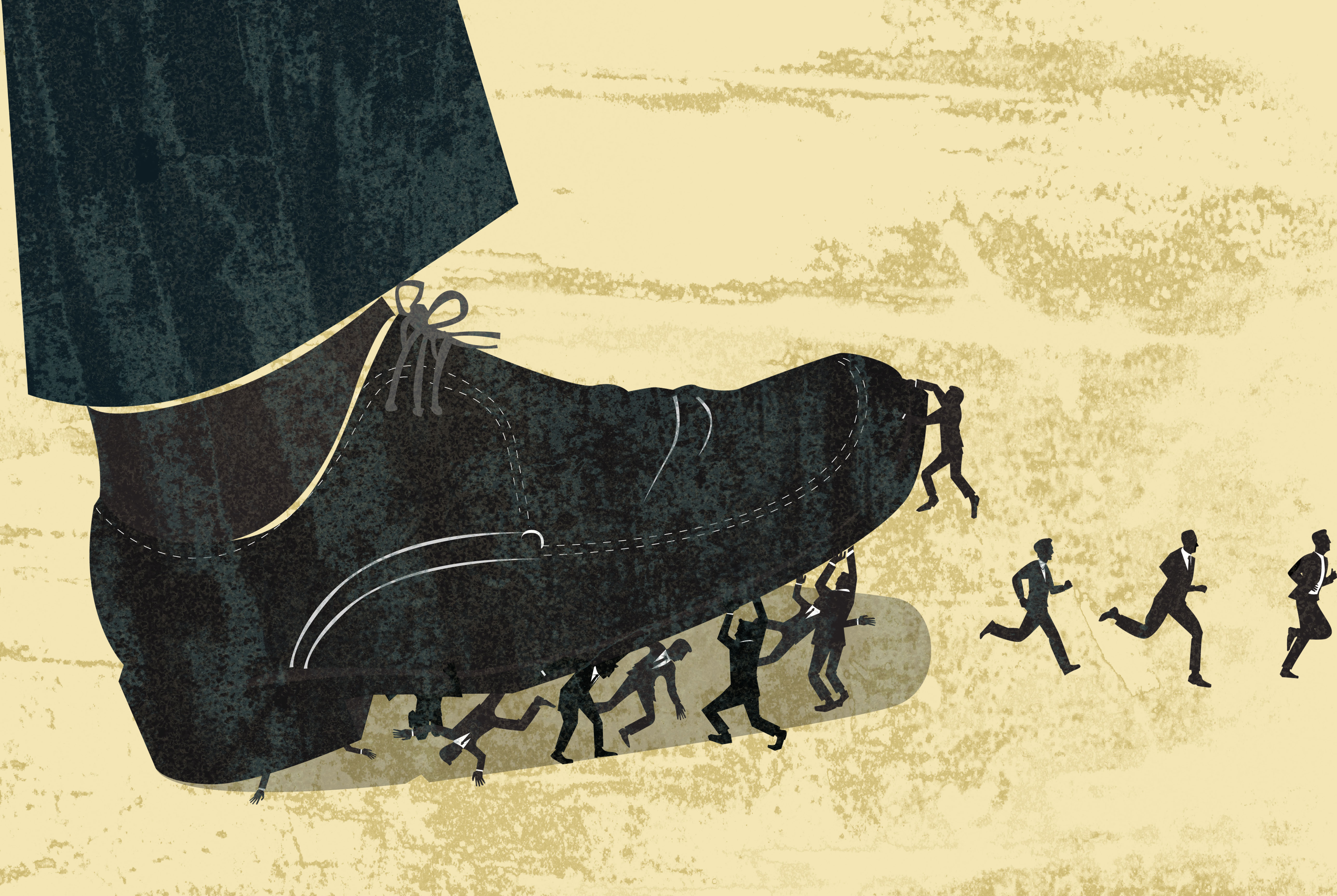
A free daily email with the biggest news stories of the day – and the best features from TheWeek.com
You are now subscribed
Your newsletter sign-up was successful
If there's one thing politicians from Donald Trump to Hillary Clinton to Bernie Sanders can agree on, it's that the American economy could stand some serious improvement. Wages are stagnant, growth is weak, poverty is high, and we badly need a huge increase in social insurance.
However, most traditional methods by which these problems might be attacked are politically out of the question, at the moment. Given the Republican handicap in the House — and the fact that the Democratic Party elite is weak at best on these issues — huge new legislation for, say, $1 trillion in infrastructure spending or a robust child allowance is extremely unlikely.
But there's another tool on the policy table with enormous untapped potential: anti-trust enforcement. An endless spree of business consolidation has left many marketplaces dominated by a few gigantic corporate behemoths. The results are atrocious — but at any time, the government could simply change how it enforces anti-trust law, and force American businesses to compete. It might just be the cheapest and easiest way to help the average American.
The Week
Escape your echo chamber. Get the facts behind the news, plus analysis from multiple perspectives.

Sign up for The Week's Free Newsletters
From our morning news briefing to a weekly Good News Newsletter, get the best of The Week delivered directly to your inbox.
From our morning news briefing to a weekly Good News Newsletter, get the best of The Week delivered directly to your inbox.
A Center for American Progress report by Marc Jarsulic, Ethan Gurwitz, Kate Bahn, and Andy Green recently gave us a great overview of American monopolization and anti-trust. It cites strong research showing consolidation leads to higher prices, a decrease in research, innovation, and corporate investment, and poor service quality. However, perhaps the most convincing testimony comes from quotes by Goldman Sachs analysts, rubbing their mandibles together in glee at the prospect of pillaging the American consumer:
Oligopolistic market structure can turn a cut-throat commodity industry into a highly profitable one. Oligopolistic markets are powerful because they simultaneously satisfy multiple critical components of sustainable competitive advantage — a smaller set of relevant peers faces lower competitive intensity, greater stickiness, and pricing power with customers due to reduced choice, scale cost benefits including stronger leverage over suppliers, and higher barriers to new entrants all at once. [Goldman Sachs Global Investment Research]
This is basically banker jargon for "monopolies make it easier to extract huge profits from captive consumers without working hard" — and if there's any company that knows how to profit at the expense of the nation as a whole, it's Goldman Sachs. It's the left-wing case against monopoly, straight from the horse's mouth!
So why not start cracking up, say, Comcast? Back in the old days, from about 1933 to the late '60s, this would have been an easy decision. Back then market concentration in itself was considered justification to block a merger or break up a large company. But as the neoliberal revolution took hold in the '70s, a much more conservative, deregulatory ideology began to take hold. Under President Reagan, potential efficiency gains were to be considered for proposed mergers, and the government had to prove any anti-competitive effects
Those are hard things to demonstrate ahead of time, and present a slew of opportunities for corporate hack economists to overwhelm regulators with squid ink "analysis" demonstrating supposed lack of negative effects. As a result, anti-trust law became more or less a dead letter.
A free daily email with the biggest news stories of the day – and the best features from TheWeek.com
Even today, as regulators have gotten a little more spine (blocking a proposed merger between T-Mobile and Sprint, for example), often they opt for little niggling rules preventing anti-competitive behavior rather than just blocking the merger outright. To this day, anti-trust law is basically conducted on pro-corporate terrain.
As Jarsulic et al argue, what is needed is a return to jaundiced anti-corporate skepticism among federal law enforcement. Regulators ought to move the burden of proof to merger apologists, closely investigate anti-competitive behavior at huge companies, stop assuming even smaller mergers are no problem, end the presumption in favor of vertical integration, and a few other things. Some of that will be constrained by how the federal courts have interpreted anti-trust law since the neoliberal revolution, but there is still much room to move.
But the most convincing reason to attack corporate consolidation is that there is practically no downside. Cutting a corporate titan into pieces doesn't destroy business, it just splits it up — indeed, often the pieces are more valuable than the original whole. There is no reason whatsoever to think that forcing corporate combat will materially harm the American consumer — the opposite is quite obviously true. Anyone trying to argue otherwise should be met with derisive laughter.
Ryan Cooper is a national correspondent at TheWeek.com. His work has appeared in the Washington Monthly, The New Republic, and the Washington Post.
-
 The ‘ravenous’ demand for Cornish minerals
The ‘ravenous’ demand for Cornish mineralsUnder the Radar Growing need for critical minerals to power tech has intensified ‘appetite’ for lithium, which could be a ‘huge boon’ for local economy
-
 Why are election experts taking Trump’s midterm threats seriously?
Why are election experts taking Trump’s midterm threats seriously?IN THE SPOTLIGHT As the president muses about polling place deployments and a centralized electoral system aimed at one-party control, lawmakers are taking this administration at its word
-
 ‘Restaurateurs have become millionaires’
‘Restaurateurs have become millionaires’Instant Opinion Opinion, comment and editorials of the day
-
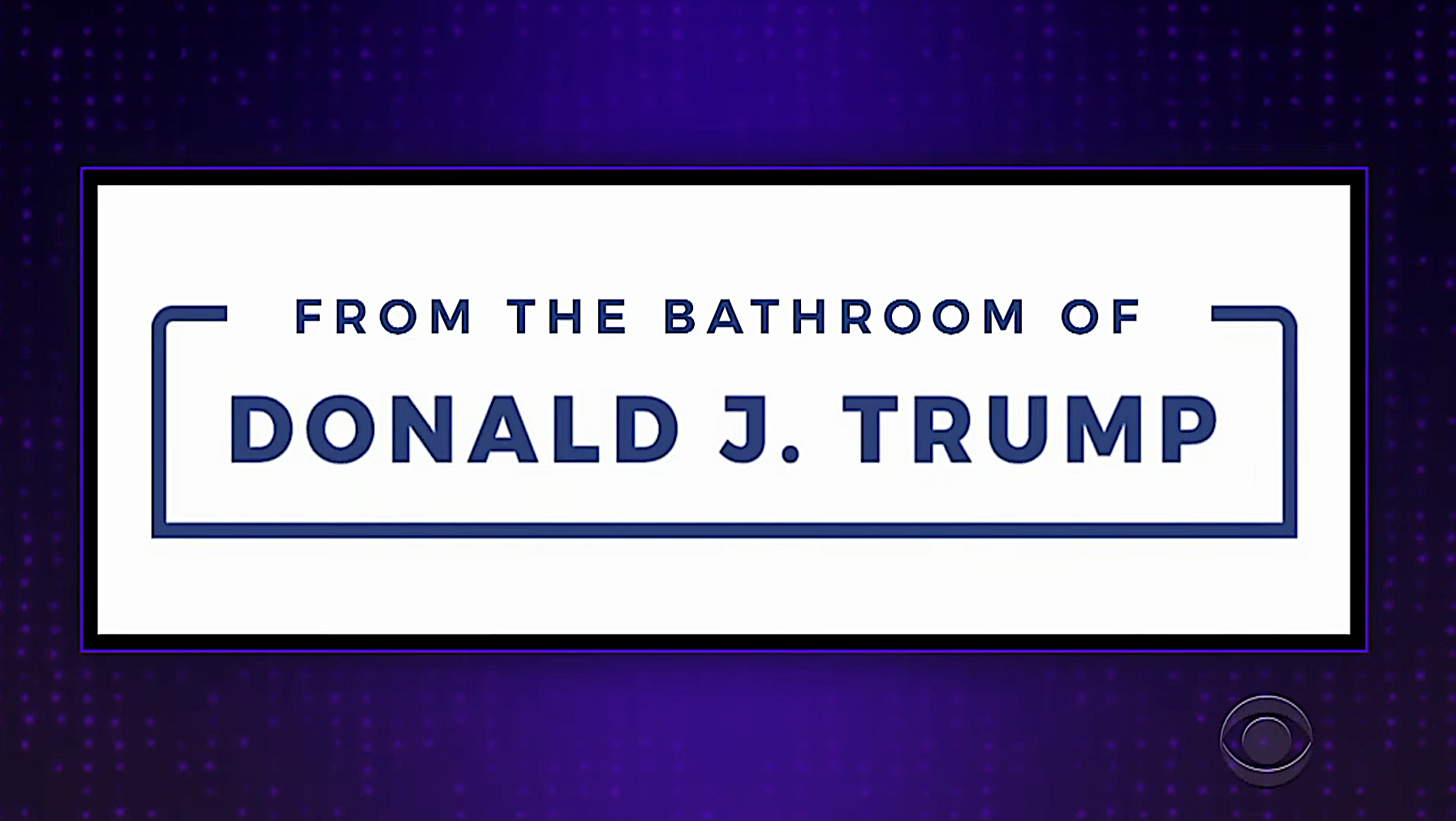 Late night hosts joke about Trump's forced exodus from Facebook to blog
Late night hosts joke about Trump's forced exodus from Facebook to blogSpeed Read
-
 Fox News admits Biden doesn't actually want to cancel meat. Late night hosts pounce anyway.
Fox News admits Biden doesn't actually want to cancel meat. Late night hosts pounce anyway.Speed Read
-
 Manhattan D.A. will stop prosecuting sex workers, not their clients, pimps, or sex traffickers
Manhattan D.A. will stop prosecuting sex workers, not their clients, pimps, or sex traffickersSpeed Read
-
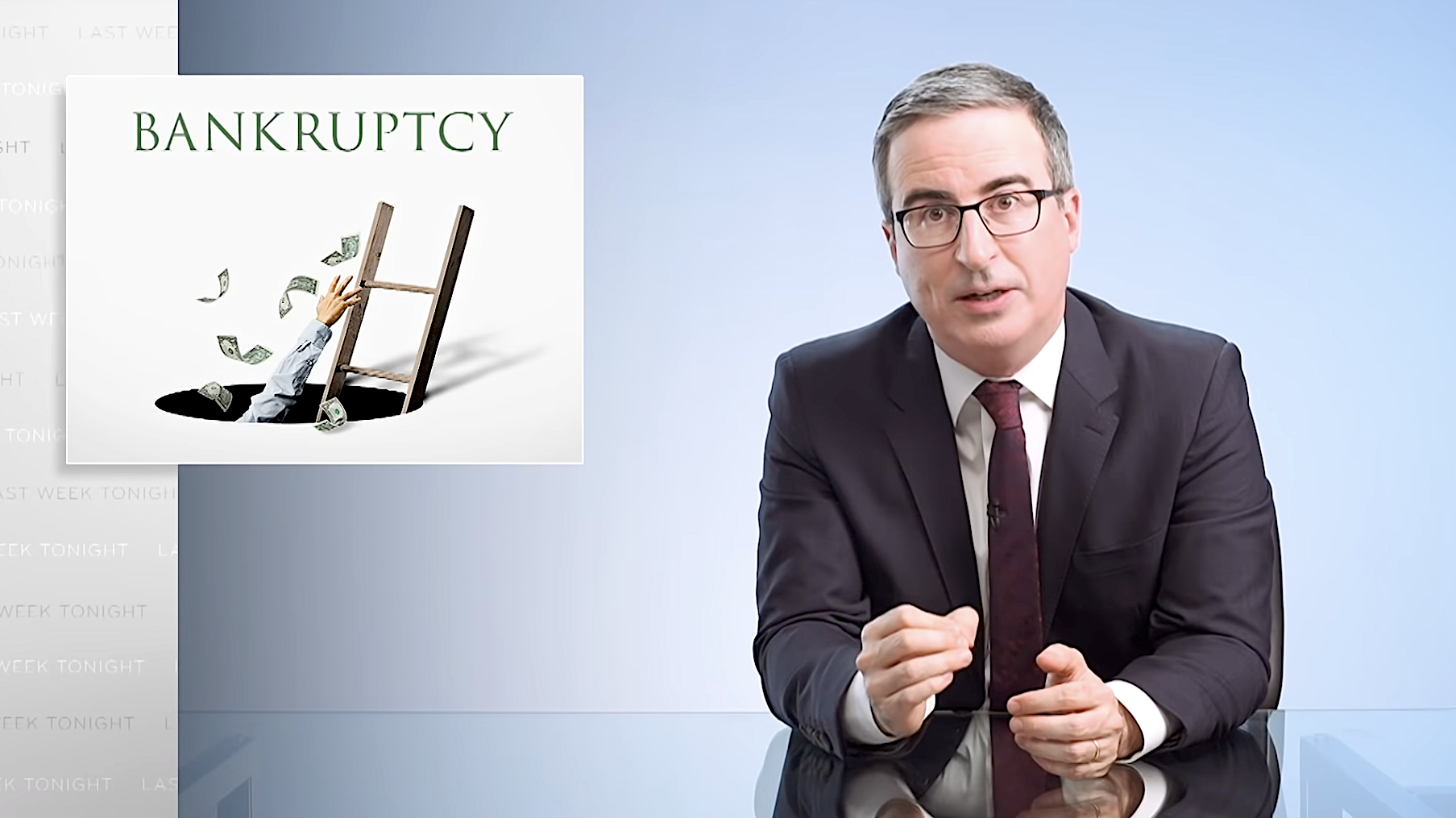 John Oliver explains personal bankruptcy, how credit card lobbyists and lawyers make it much worse
John Oliver explains personal bankruptcy, how credit card lobbyists and lawyers make it much worseSpeed Read
-
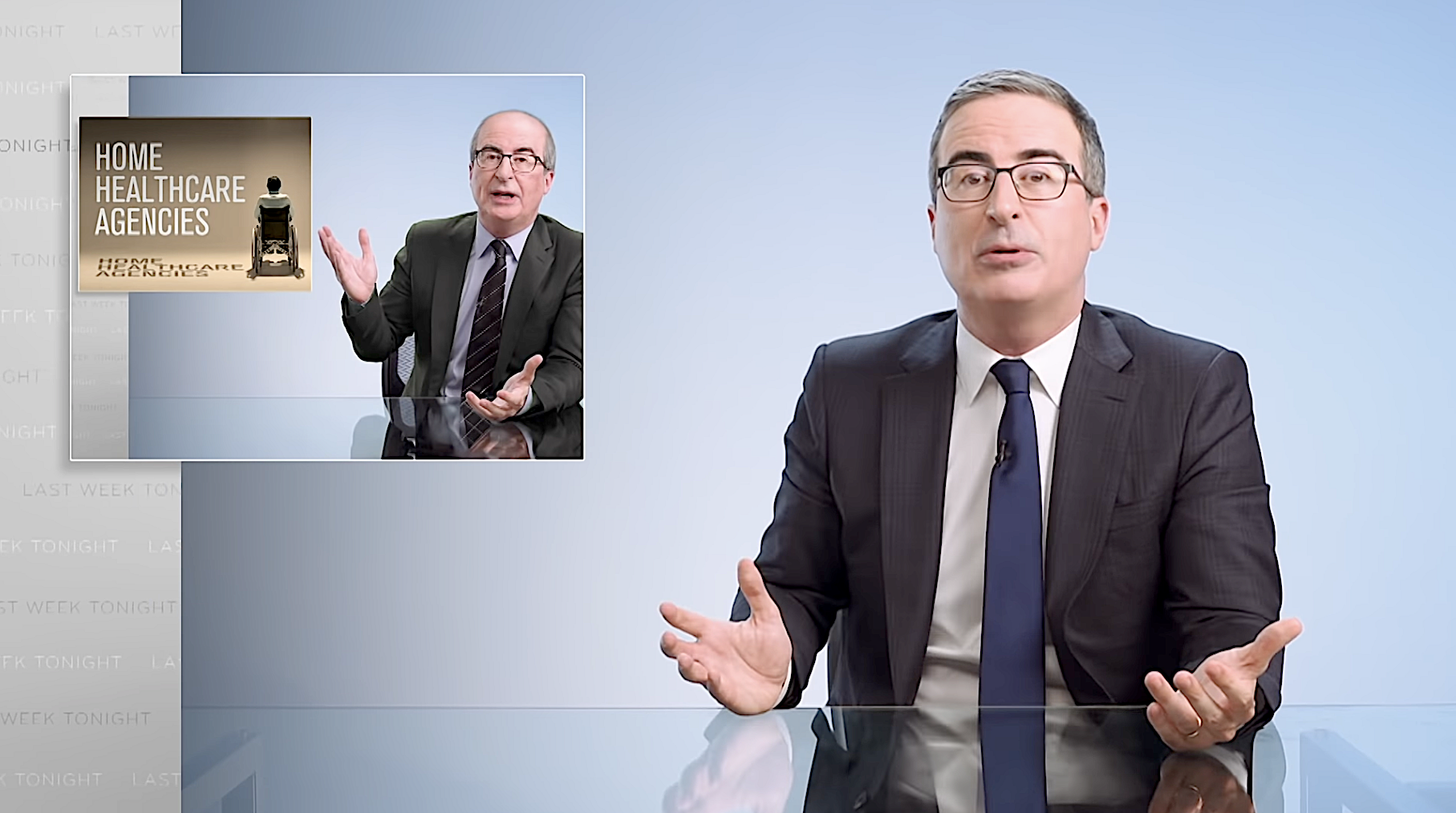 John Oliver explores problems with U.S. nursing homes and long-term care, suggests you pay attention
John Oliver explores problems with U.S. nursing homes and long-term care, suggests you pay attentionSpeed Read
-
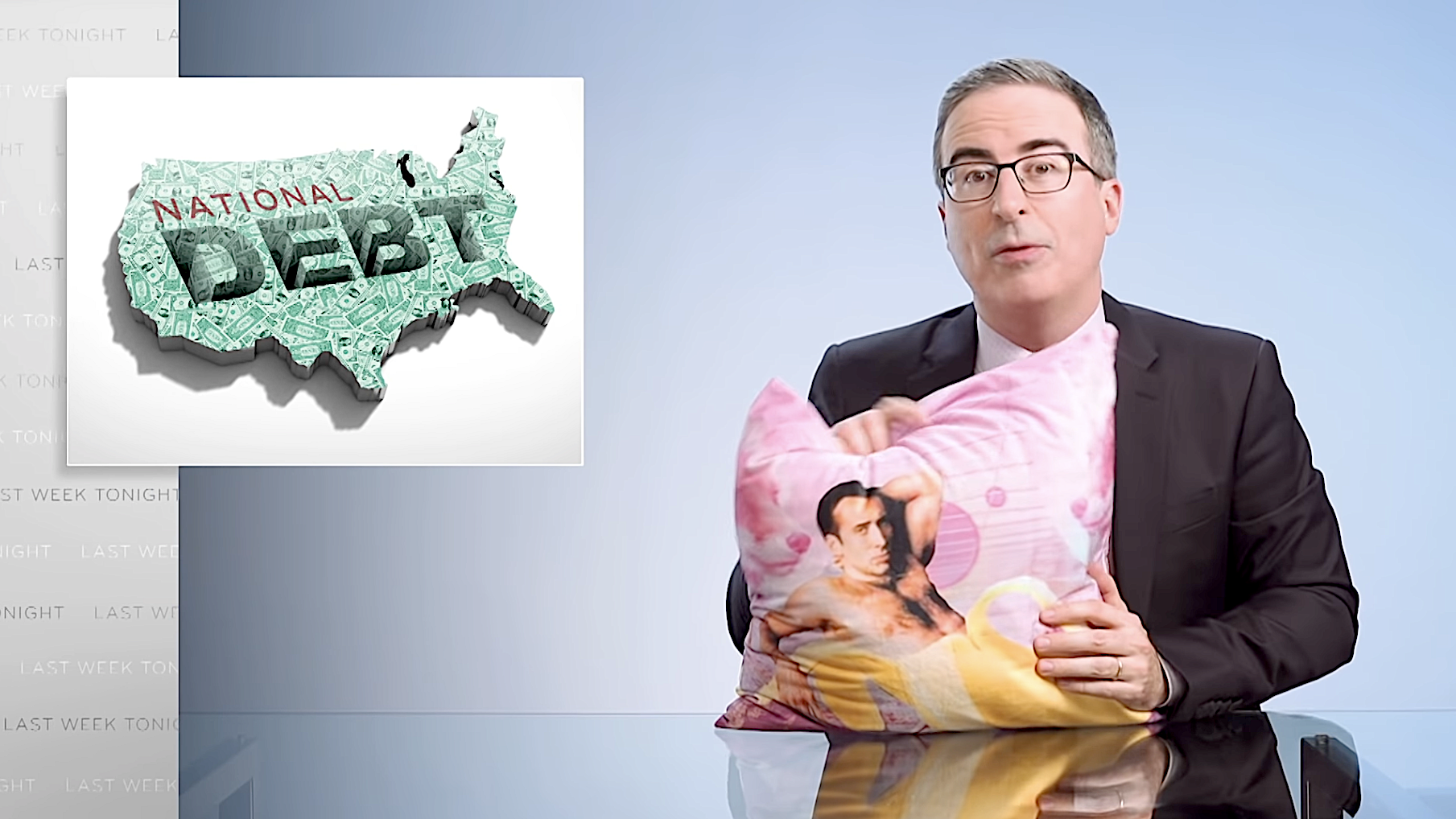 John Oliver tries to explain whether you should worry about the enormous U.S. national debt
John Oliver tries to explain whether you should worry about the enormous U.S. national debtSpeed Read
-
 Late night hosts laugh at the giant ship blocking the Suez Canal, chide Fox News for fake Kamala Harris scandal
Late night hosts laugh at the giant ship blocking the Suez Canal, chide Fox News for fake Kamala Harris scandalSpeed Read
-
 Utah governor signs bill requiring porn blocking on all new smartphones and tablets
Utah governor signs bill requiring porn blocking on all new smartphones and tabletsSpeed Read
